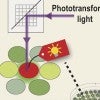
SPOTlight supercharges cell studies
Researchers develop a new method to isolate specific cells, and in the process find a more robust fluorescent protein.

SPOTlight supercharges cell studies
Researchers develop a new method to isolate specific cells, and in the process find a more robust fluorescent protein.
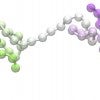
At our cores, we’re all strengthened by ‘dumbbells’
Scientists at Rice’s Center for Theoretical Biological Physics detail the structure of dumbbell-like sequences in DNA during interphase that suggest several unseen aspects of chromosome configuration and function.

National parks preserve more than species
National parks are safe havens for endangered and threatened species, but an analysis by Rice University data scientists finds parks and protected areas can preserve more than species.

Solomon, Siebach appear in science TV series 'Life 2.0'
Rice faculty members Scott Solomon and Kirsten Sieback appear in the first episode of "Life 2.0," a new television series that's available for streaming and slated to debut on the air this weekend.

Where lions operate, grazers congregate … provided food is great
Meals are typically family affairs for zebras, gazelles, cape buffalo and other grazing species in the African Serengeti, but in one of the first studies of its kind, ecologists have found grazing species can be more willing to share meals in areas frequented by lions.
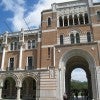
Rice receives NSF grant to boost STEM education
A multi-institutional team led by Rice University has received a $1.4 million grant from the National Science Foundation (NSF) for a collaborative project studying persistence and retention of science, technology, engineering and mathematics (STEM) teachers across the nation.

Alum Toni Antalis '81 takes reins at biochemistry and molecular biology society
Rice alumna Toni Antalis '81 became president of the American Society for Biochemistry and Molecular Biology July 1.
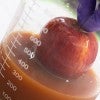
Egg-based coating preserves fresh produce
Eggs that would otherwise be wasted can be used as the base of an inexpensive coating to protect fruits and vegetables, according to Rice University researchers.
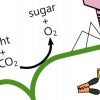
Ocean virus hijacks carbon-storing bacteria
Rice scientists are analyzing the role of ferredoxin proteins produced when viral phages alter electron transfer in ocean-dwelling bacteria that produce oxygen and store carbon.
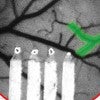
Blood flow recovers faster than brain in micro strokes
Work by a Rice neurobiologist shows that increased blood flow to the brain is not an accurate indicator of neuronal recovery after a microscopic stroke.

Federal grant bolsters Rice eye research
A Rice University researcher has won a prestigious federal grant to study how a recently identified protein in the cornea aids development, homeostasis and wound healing in the eye.

Janet Braam named interim dean of natural sciences
Rice University bioscientist Janet Braam has been appointed interim dean of the Wiess School of Natural Sciences.
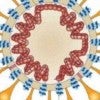
Rice researchers look to ‘trap and zap’ coronavirus
Rice University researchers plan to reconfigure their “trap and zap” wastewater-treatment technology to capture and deactivate the virus that causes COVID-19.

Rice student mentors switch gears, go online
Rice University’s BIOC 129 class was always a model of “paying it forward,” but extraordinary circumstances have prompted it to go the extra mile.
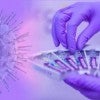
As part of a coordinated effort to combat COVID-19, Rice University has established a research accelerator fund to support projects intended to help end the pandemic and prepare for similar outbreaks in the future.